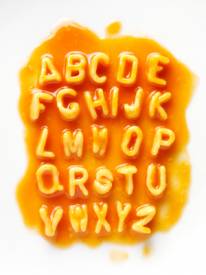 All of us measure our intelligence, to some extent, by how well we remember things. When a young child enters school there is a tremendous premium on the ability to memorize. From learning the alphabet to memorizing math facts, success in school is measured by memory.
All of us measure our intelligence, to some extent, by how well we remember things. When a young child enters school there is a tremendous premium on the ability to memorize. From learning the alphabet to memorizing math facts, success in school is measured by memory.
Parents intuitively understand this and encourage their children to demonstrate their mnemonic skills. Reciting a poem, repeating the alphabet, counting to 100, or listing other facts like state capitals, can be a badge of “knowledge” that parents will ask their children to perform to demonstrate their intellectual prowess. But, sadly, many children who are significantly behind in some aspects of development can recite and memorize.
It is interesting, that from a neuroscience perspective, memorization is not really a very advanced skill. Memorization of facts, poems, or lists is accomplished by one of the most primitive and, from an evolutionary perspective, oldest parts of the brain, the hippocampus.
The hippocampus is a horseshoe-shaped area situated deep in the center of the brain in one of the oldest parts of the brain, the medial temporal lobe. All animals with a spinal cord have a hippocampus.
Most brain scientists regard the hippocampus as the part of the brain that allows us to learn anything new. And, in fact, when it is permanently damaged in humans, they become unable to learn anything new although they can recite without error information they learned before this part of the brain was damaged. So, it turns out that the hippocampus is like the “tape recorder” of our brain. It enables us to memorize new information but does not appear to be essential for retrieving information we learned years ago or information we know well. 1
A great deal of learning in the elementary grades involves the hippocampus. Memorization of spelling rules likes “ ibefore eexcept after c,” math facts, reading of “sight” words that cannot be sounded out, and geographical facts, just to name a few, demand good memorization skills (hippocampus function.). Reading curriculum used before 1970, like those used when the goal was memorization of the “Dolch” sight words, also stressed memorization skills. 2
Children who were not particularly good at memorization in the 1950’s or 1960’s were at a great disadvantage in the early grades. But the 1980’s ushered in a new approach to reading, phonics. The phonics approach to teaching reading went through a slight reversal in the 1980’s and early 1990’s with an academic approach called “total language” that stressed reading speed and ease through use of contextual information like pictures and story 3familiarity, but the phonics-based approaches are now quite strong in most American academic curricula as research pointed to its overall superiority for teaching young readers.
The phonics reading approach places far fewer demands on memorization because a child can read many words without having to memorize them. But phonics does require a kind of memory – working memory – that involves a much more advanced part of the brain and is different from memorization.
1 There is considerable debate about how important the hippocampus is in retrieval of different types of stored information. Squire, et al., discuss some of this debate in an excellent summary article: Nature Reviews Neuroscience 8, 872–883 (1 November 2007) | doi:10.1038/nrn2154
2 Anyone who was educated with “Dick and Jane” books was taught to memorize a list of Dolch sight words at each grade level.
3 The National Research Councilnow recommends that all reading curricula in U.S. schools stress phonemic awareness, phonics, reading fluency, comprehension and vocabulary building.

